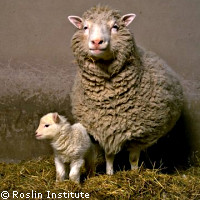EFSA finds cloned animals fit for human consumption
The European Food Safety Authority (EFSA) has concluded that milk and meat derived from healthy cloned cattle and pigs are suitable for human consumption. The scientific opinion was requested by the European Commission in 2007. It will be complemented by an opinion from the European Group on Ethics in Science and New Technologies. EFSA's opinion is now open to public consultation. Death and disease rates among clones are significantly higher than those among conventionally reproduced animals. But as long as unhealthy clones are prevented from entering the food chain, as would be the case for normal animals, the healthy clones can be consumed, EFSA concludes. 'It is very unlikely that any difference exists in terms of food safety between food products originating from clones and their progeny compared with those derived from conventionally bred animals,' states the opinion. In order to evaluate the safety of milk and meat from cloned animals, EFSA looked at the following: compositional and nutritional data, probability of novel constituents being present, health status of the animal, available data on toxicity and allergenicity and microbiological aspects. The Authority notes however that the technology involved in somatic cell nucleus transfer (SCNT) is relatively new, and that the data available for risk assessment are limited. Most of their studies therefore had to be small in size. The relative novelty of SCNT also has advantages however. While the Authority found that the health and welfare of a significant proportion of clones was adversely affected, the opinion notes that the proportion of unhealthy clones is likely to decrease as the technology improves. In SCNT, the nucleus of a differentiated somatic cell (a non-germ-line cell) is transferred by cell fusion or direct injection into an oocyte (an immature ovum involved in reproduction) that has had its nucleus removed. The reconstructed embryo is artificially activated to start its development and is implanted into a female - the surrogate mother. There it develops until it is delivered. Cloning is attractive for scientists because it enables them to introduce proven desirable characteristics, such as disease resistance, and allows the propagation of animals regardless of their fertility. Comments on the draft opinion can be submitted until 25 February.



